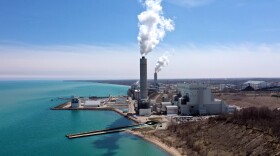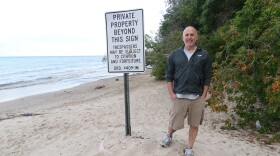
Susan Bence
Environmental ReporterSusan Bence entered broadcasting in an untraditional way. After years of avid public radio listening, Susan returned to school and earned a bachelor's degree in Journalism from the University of Wisconsin-Milwaukee. She interned for WUWM News and worked with the Lake Effect team, before being hired full-time as a WUWM News reporter / producer.
Susan is now WUWM's Environmental Reporter, the station's first. Her work has been recognized by the Milwaukee Press Club, the Northwest Broadcast News Association, and the Wisconsin Broadcasters Association.
Susan worked with Prevent Blindness Wisconsin for 20 years, studied foreign languages at UWM, and loves to travel.
-
Stormwater managers are looking for ways to prevent flooding when torrential storms hit. In Milwaukee, that includes reducing runoff from freeways.
-
Environmental and health organizations around the country recently filed a lawsuit against the Environmental Protection Agency for rolling back climate protections.
-
An analysis by Climate Central found that Milwaukee’s January temperatures have risen more than 8 degrees over the last 55 years.
-
Milwaukee-area anglers have been watching changes in ice fishing conditions as climate change takes its toll on winter weather.
-
A Madison-based environmental law firm filed an appeal to Milwaukee Circuit Court on behalf of the Shorewood resident who received a citation for walking the shoreline beyond this public beach.
-
The blind date cookie has been around for centuries. A Bubbler Talk listener wanted to learn how the sweet's origins are connected to Milwaukee.
-
Pros and cons continue to swirl around data centers — some in the planning stages, others already in motion in Wisconsin. A We Energies proposal is adding fuel to the fire. It would create a new energy rate for so-called “very large” customers, like data centers.
-
Grasslyn Manor, a neighborhood within Milwaukee’s Sherman Park, has been grappling with flooded basements for decades. Despite the increasingly erratic weather climate change doles out, its residents are determined to curb their flooding problem.
-
A judge ruled Wednesday that a Shorewood man was guilty of trespassing when he walked along the Lake Michigan beyond the public beach last summer. The man says he'll appeal the decision.
-
Last weekend, dangerously low temperatures hit the Milwaukee area. Shelters opened their doors and stretched their capacity to assist as many residents as possible, including Cathedral Center in downtown Milwaukee.









